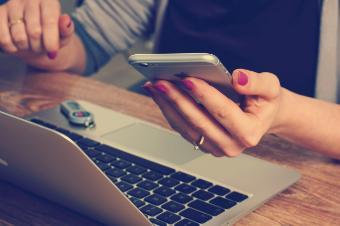When you get lost in your assignments or feel frustrated that something isn’t going well, you can neglect breaks. Here are some tips to prompt you to regularly step away and rebuild your energy.
Agree break times with your peers and help each other to stick to the break time you’ve agreed.
Set an alarm on your phone to prompt you.
Plan to do something in your break that you enjoy – the anticipation of pleasure will motivate you to keep to the break.
Pay attention to any benefits you experience when you take a break – this will lodge in your mind and motivate you to take breaks in future.
Use post-it notes or drawings in your workspace to remind you that for a long-term piece of work – you won’t complete it well, if you burn yourself out: so, take a break.

 The availability of information and the sophistication of current software, means that many people can find themselves spending hours in front of screens each day.
The availability of information and the sophistication of current software, means that many people can find themselves spending hours in front of screens each day. So how much is too much?
So how much is too much?